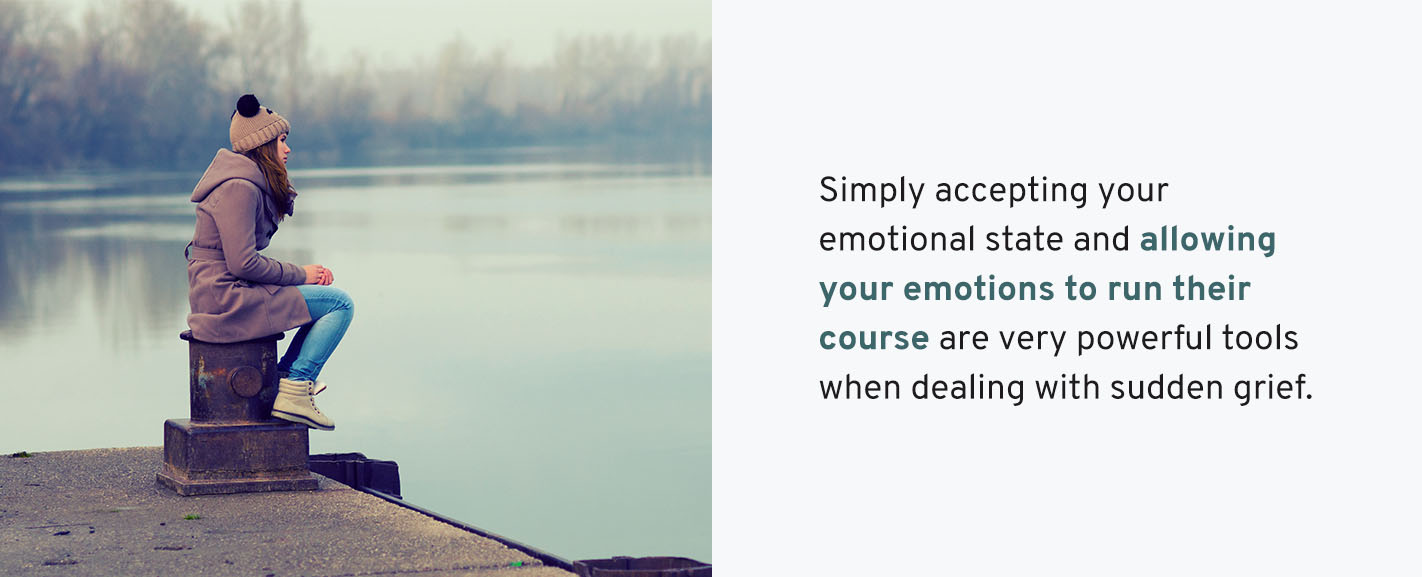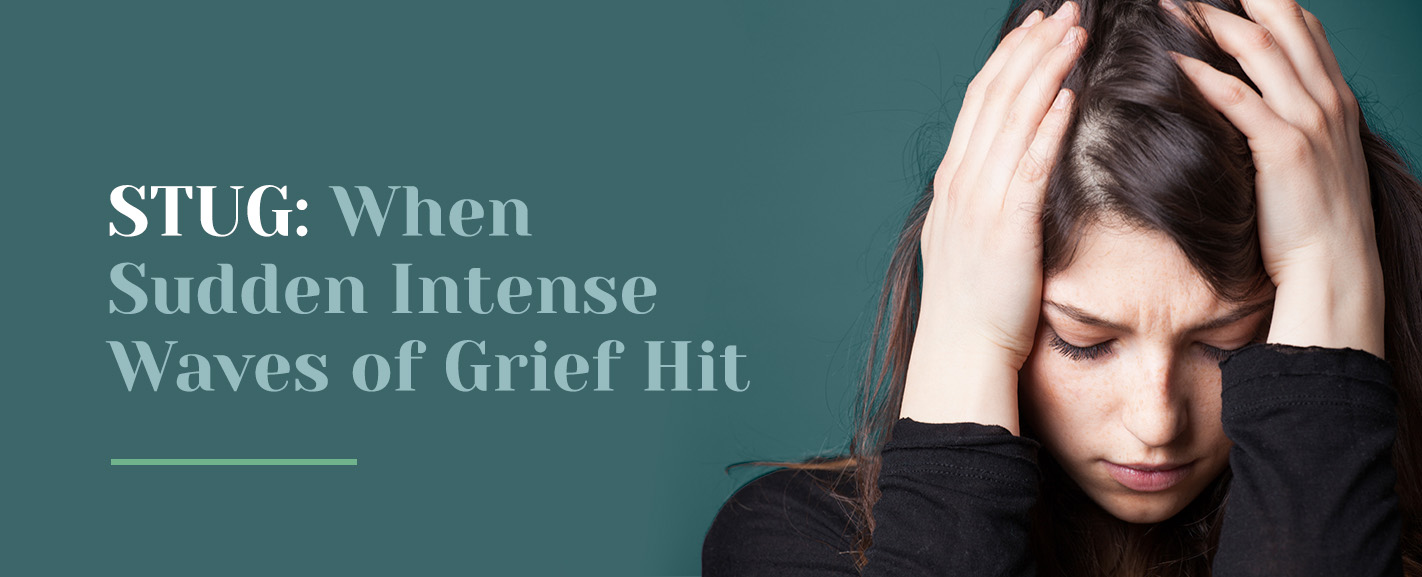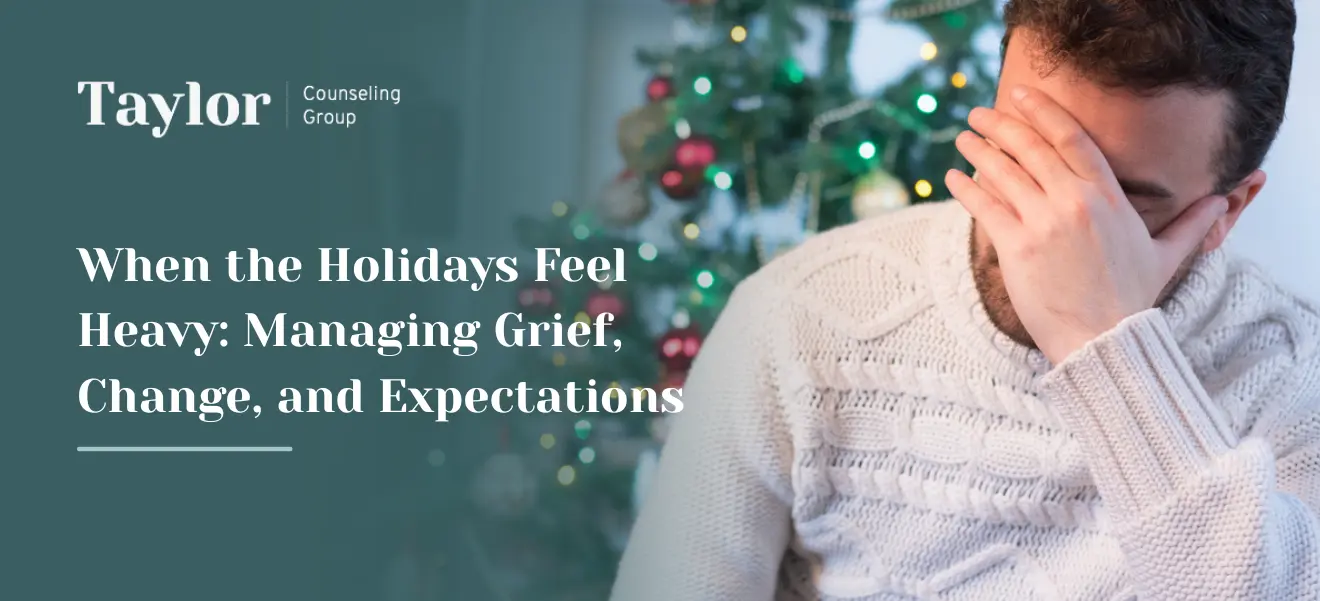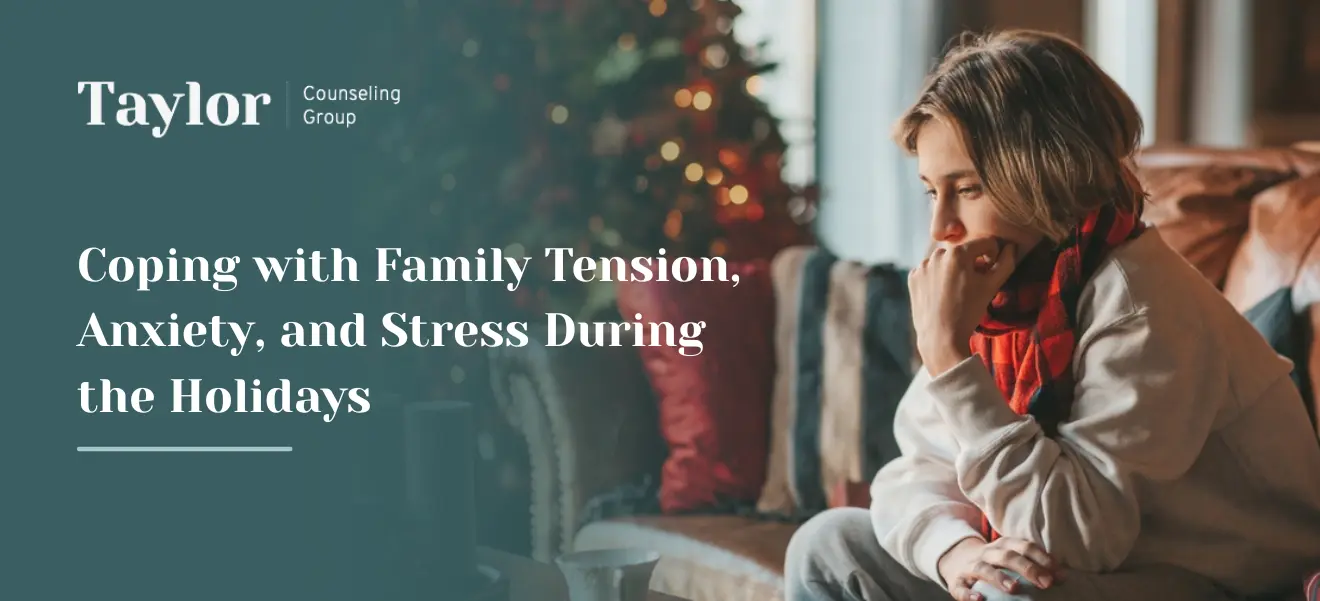When grief hits you out of nowhere, it can have devastating and paralyzing impact. After a sudden or tragic loss, you’re likely to be in a state of grieving for an unspecified amount of time. Everyone grieves in their own unique way, and there is no timeline for dealing with your loss. Dealing with grief is a challenge for even the most well-adjusted people, so it’s important that you allow yourself time to process and cope with your loss.
Table of Contents:
- Why Do I Get Hit With an Intense and Unexpected Wave of Grief?
- What is STUG?
- How to Deal with Sudden Grief
- What to Do When Grief Hits You Out of Nowhere
- Get Help with Sudden Grief
Regardless of the amount of time you give yourself to deal with your loss, grief has a tendency to strike in intense and unexpected waves that can be overwhelming and debilitating. If you’re wondering how to deal with sudden grief, you’re not alone, and there are techniques you have at your disposal that will help you overcome your loss.
Why Do I Get Hit With an Intense and Unexpected Wave of Grief?
Dealing with sudden grief can make you feel isolated, alone and alienated from the rest of society. However, it’s important for you to understand that it’s common for someone dealing with a recent loss to experience intense and unexpected waves of grief. Unexpected waves of grief coupled with a seeming lack of control over your emotions can make you feel helpless and isolated from others. Many times, you’ll find yourself overcome by an intense and unexpected wave of grief when you’re placed in certain social situations or environments that trigger your memories of a lost loved one.
Situations that might trigger a wave of sudden grief can be unavoidable such as during everyday, mundane tasks like trips to the grocery store, watching a television show or simply seeing others experiencing and enjoying life with their loved ones. There is no real way to tell that a certain situation or environment will trigger a sudden wave of grief. When grief hits you out of nowhere, it’s important that you have a support system in place to help you through the tough times. That’s when different coping mechanisms and support tools that you have put in place can be the most helpful and beneficial.
It’s also important to remember that you have a right to allow yourself time to process through the different stages of grief. Handling the various emotions associated with the loss of a loved one is uncharted territory for most people. You may be experiencing a range of emotions that you have never had to deal with before your loss, so it’s important you realize that grieving is a process, one that can’t be rushed or hurried through.
What Is STUG?
A sudden temporary upsurge of grief, also known as STUG, has a tendency to strike when you least expect it. Coping with STUGs throughout your everyday life can be difficult and overwhelming, so your ability to identify when an upsurge is occurring plays a key role in the grieving process.
STUGs that seemingly come out of nowhere are typically triggered by something that reminds you of your lost loved one. These triggers can be caused by any number of factors such as seeing a stranger who reminds you of your loved one, visiting or passing by your loved one’s favorite store or hearing your loved one’s favorite song come on the radio. One of the most important things to keep in mind is the T in STUGs stands for temporary, so realizing that STUGs are just that, temporary, will help you process when a sudden upsurge in grief unexpectedly hits you.
Everyone has their own way of dealing with STUGs, but what’s important is that you find a healthy way to embrace your emotions and process the feelings of grief you’re experiencing.
How to Deal With Sudden Grief?
Dealing with sudden grief gets easier with time. In the beginning, sudden waves of grief might last for hours or even days. As you process through the stages of grief and cope with your loss, you’ll find the waves of sudden grief that once lasted days or hours now only last hours or minutes. Here are some helpful tips for dealing with waves of sudden grief after the loss of a loved one:
- Take time to yourself: When grief hits you out of nowhere, it’s important to take time to yourself and allow yourself time to process. Whether that’s taking five minutes alone to collect your thoughts and emotions, or taking a mental health day away from work or school, it’s important that you take time to yourself and give yourself room to process your loss.
- Allow yourself to “feel” your emotions: Accepting sudden waves of grief as part of the grieving process is helpful when dealing with the loss of a loved one. There is healing in embracing your emotions and allowing them to take control for a while. Don’t try to fight or control sudden waves of grief. Simply accepting your emotional state and allowing your emotions to run their course are very powerful tools when dealing with sudden grief.

- Realize there is no quick fix: We all deal with loss in unique ways, and dealing with grief should not be viewed any differently. Allow yourself to grieve and remember that there is no timetable for dealing with waves of sudden grief. Be patient with yourself and don’t try to rush your way out of the grieving process.
- Accept support when it’s offered: After the loss of a close loved one, the other people in your life who are close to you are going to offer their unwavering support. Don’t view these offers of support as mere attempts to humor you during this difficult time, and be open to accepting and embracing the support of your friends and family. During sudden waves of grief, it’s helpful to know you have the support of a trusted friend or family member you can talk to about your feelings and emotions. Keep your support system nearby to help you deal with sudden grief and the emotions you’re experiencing.
These are just a few of the helpful ways to deal with your sudden waves of grief after the loss of a loved one. Again, everyone deals with grief in their own unique ways, so take time to find the ways that best suit you. You may find that engaging in self-care activities including physical activity such as exercise or spending time outdoors enjoying your favorite hobbies is an ideal way to process your emotions when grief suddenly hits out of nowhere. The most important part of dealing with sudden grief is to find a healthy way to process it.
What to Do When Grief Hits You Out of Nowhere?
When grief hits you out of nowhere, feelings of helplessness, hopelessness and an overall sense that you lack control over your emotions are all incredibly common. Understanding what to do when grief hits you out of nowhere is a powerful tool when dealing with loss. If you’re currently processing through the stages of grief but have yet to experience sudden waves of grief that hit out of nowhere, then you may not understand what’s happening at the moment when grief strikes unexpectedly.
When grief hits out of nowhere, a positive outlook on the experience is a helpful tool that will help you deal with it and process through the spells. That’s not to say that a positive outlook regarding why you’re experiencing sudden grief will help you cope with it, but rather that positively viewing grief as a complicated emotion that requires your immediate attention is a helpful method for dealing and coping with your feelings.
Many times, you’re taken aback by the sudden onset of emotions and grief when it strikes unexpectedly. It’s important to understand that this is a normal reaction and it’s all part of the grieving process. You may have no choice but to allow yourself time for a good cry or to spend time deep in thought remembering your lost loved one. Embrace your emotions and give yourself permission to express these feelings as they suddenly come and go.
It’s also important to understand the difference between complicated grief and usual grief. Identifying the difference between the two types of grief will empower you to deal with sudden waves of intense grief. Usual grief encompasses all the symptoms associated with the typical grieving process. Complicated grief is characterized by the following symptoms:
- Withdrawal from society and work
- Feelings of intense hopelessness
- An inability to return to normal, everyday routines
- Feeling like you can’t go on any longer
- Wishing that you had died too
- Believing you did something wrong or could have prevented the death of a loved one
Are you experiencing any of these symptoms associated with complicated grief? These are just a few of the signs that you may be dealing with some serious impacts left by the death of a loved one.
Contact Taylor Counseling Group for Help Dealing With STUGs and Sudden Waves of Grief
Are you experiencing sudden waves of grief associated with the loss of a loved one? You don’t have to go it alone. The professionals at Taylor Counseling Group offer affordable, individualized and comprehensive support through our counseling services. Our professional services are designed to help folks just like you deal with the sudden waves of grief that consume their daily lives. Our therapists understand the many challenges you’re facing after the loss of a loved one, and we pride ourselves on the diverse approaches we take to help you through difficult times such as these.
Want to learn more about Taylor Counseling Group’s grieving services? With locations in Dallas Fort Worth, San Antonio and Houston, Taylor Counseling Group proudly offers affordable, reliable and confidential counseling services at several convenient locations throughout Texas.
Contact us today to learn more about our services or schedule an individual therapy session with one of our trusted therapists using our online client portal.







